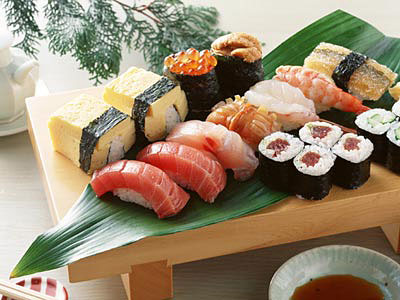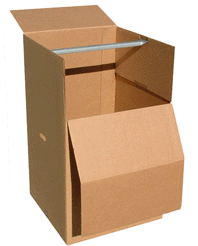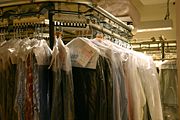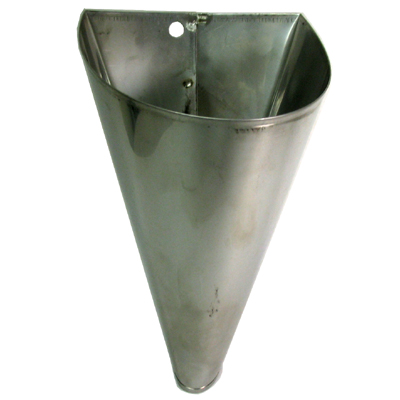 wild thing organics wild thing organics |
|
- Country Life
- Traffic Lights
- Shopping
- Shopping Part 2
- Dry Cleaning
- Dry Cleaning Part 2
- Jobs/Ambition
- The T Word
- Narc Coat
- Trendy Accessories
- Cow (s)pies
- Two Comforters, No Starch
Our little farm's online journal that attempts to reconcile rural fantasies and post-urban realities
Our blog is a city girl's tongue-in-cheek perspective on adjusting to the country. It is written with affection and with absolutely no harm or offence intended to anyone. Any other interpretation of these posts is missing the humorous and harmless spirit in which they are written. We love our town, our neighbours and the friends we've made here, which is why we're fighting so hard to protect it. Our environment, well-being and way of life are precious, rare and worth preserving.
For all of you fellow disgruntled, stressed-out city-types out there contemplating a move to the country, read carefully. No, this is not intended to be a scare tactic; but just know what you're in for. And know that I'm not making any of it up.
Christina Lake, population 1500 or so year-round, multiply that by 4 in summer for the tourist contingent, is rich in natural beauty. There. Now that that's out of the way, here's what it's lacking:
1. Decent organic food.
2. Traffic lights.
3. Shopping.
4. Dry cleaning facilities.
5. A bank.
6. Jobs/Ambition
7. Culture.
Let's explore each of these deficiencies more closely:
1. Decent organic food. The local grocery store, which shall remain nameless, is a throwback to the 60's and 70's, and that's just about how long most of the chemically altered conventionally grown inventory has been occupying its shelves. There is a fossilized, chemically preserved shrimp ring in the freezer case that pre-dates either of us (meaning our births, not just our arrival in town), and has enough freezer burn to cloak its true identity in absolute opaque secrecy, were it not for the presence of the product label. Many a time we've walked in there to use the antiquated, 80's-era bank machine (the only relic of post-70's vintage) and take a quick stroll around the aisles. Not to purchase any food, because by our standards, there isn't any. Just to carbon date the cans of baked beans and Spam, along with the other shelf-stable marvels of modern processing; and the withered, pesticide-laden produce trucked in from who knows where, and who knows how long ago. It's as close as this town comes to a museum, but that's jumping ahead to gripe #7, and I digress.
It's not that there's a shortage of food production in the region. There just isn't a local retailer who will sell it. If you want to peruse a cornucopia of fresh, organic B.C. produce grown within minutes of here, drive 400 miles to Alberta and shop there. If anyone here were to take the "eat local" challenge, they'd starve and perish too quickly to even wax smugly about their high principles and environmental correctness. Ironically, their decomposing flesh would provide excellent nourishment to the soil; but whatever grows there would, no doubt, be swiftly exported.
And an ice-fused, giant Life Saver ring of shellfish older than I am has no place in my digestive tract; though I recognize that the shrimp may hold, in its state of chronic, subzero preservation, numerous profitable, exploitable anti-aging properties. This tangent could easily whisk me too soon to gripe #6, so I'll stop here.
Next installment: Traffic lights, and why they matter.
2. Traffic lights, and why they matter.
. .
.
Let us preface this installment with a simple statement. It is in no way meant to insinuate this area is littered with drunks. That is simply not true of this peaceful, rural mountain community. But like in every city or town, there are those to whom this applies.
Back in L.A., traffic lights were the bane of my existence (well, at least they rotated elevated status with other banes). They were at the end of every single block, and not only turned red without fail just as I approached; they stayed red for what felt like centuries. They often turned a 2-mile drive into a 45-minute affair. This is why no one in Los Angeles can answer the oft-asked tourist question, "How many miles is it to (fill in the blank)?" It's a cliché that we all answer in minutes or hours. Distances in miles mean nothing in L.A., and the longer you live there, the more feeble you become at gauging actual distances, as they have no bearing upon reality. Minutes are reality. Hours are reality. Miles, like age, are just a number.
So when I learned that our new little mountain town was free of traffic lights, a palpable thrill shot through me. No more eternal damnation delays spent staring at a little red ball, hoping that the agitated meth-head driving the $200,000 Mercedes in the adjoining lane hadn't done enough of the stuff to actually whip out his .22 and blow the signal light housing, and me, to bits. Road rage is not an abstract concept down there. Assuming that each and every car on the road is concealing something handheld and made of metal that can instantly reduce you to compost is just part of daily life. Calgary was rapidly reaching that point, too.
Ahhh... the glorious countryside. Surely there could be no disadvantages to the lack of these bits of roadside punctuation, these occasional periods and semi-colons that encourage you to slow down, rest, pause, reflect and gather your thoughts before resuming the vehicular chapter of your journey. Or could there?
As you may have gathered from the first post, there's not much for some to do in Christina Lake. What I didn't come right out and mention is that there are more bars per capita than grocery stores in these here parts. One grocery store, so you do the math from there. And bars can mean drunk rednecks at any time of day or night. It is precisely these drivers that require the very periods, commas and the rest of their ilk that comprised the very flesh of rotational bane-dom back in my days in the city. Run-on sentences in the form of endless stretches of highway can be a dangerous thing behind the wheel of an unemployed local who has spent his day mainlining cans of cheap, domestic beer, lamenting the wretched state of his life and then weaving his way home to promptly beat the hell out of the little woman.
The RCMP have enough on their plates trying to keep track of all the grow-ops. Who has the time to tail every beat-up pickup with a gun rack doing ice-skating maneuvers on the highway?
Here's another sobering thought: There's a distinct lack of public transportation (hitchhiking doesn't count) in this neck of the woods. Buses, taxis and subways come in handy in the city when it's 2 a.m. and dozens of bloodshot, bobbing and weaving silhouettes are skulking around the bar's dimly lit parking lot trying to discern between their car keys and the dusty, unused pack of condoms they've been carrying around in earnest for the past 10 years. Really, people like this need to live in a big city. They can hail a taxi after peeling themselves off the barstool and then hit the red light district to put the Trojans to use.
Don't drink and drive, folks. This has been a public service announcement from your friends at Wild Thing.
Deficiency Countdown, cont'd. Shopping
. .
.
For readers who live elsewhere, try to imagine what your city or town might have looked like about 85 years ago and that'll give you some idea of where we are. Add hills and trees. Actually, that should give you a chillingly accurate picture of this place. If, in your intensely focused imaginings you made the gross judgmental error of visualizing more than a couple of gas stations and no-frills motels, go back another 10 years.
Before I embark upon another tirade about how "uncivilized" this town is and drone on about all that it lacks, let me first frame this by saying that I no longer see big cities as bastions of civilization; nor do I believe that thousands of adjoining, overpriced retail establishments and the agonizingly of-the-moment shoppers who cruise them must punctuate the landscape in order to construct a quality life in said location. Truth be told, I'm relieved and happy to have fled such locales.
That said, where does one draw the line? At what point in product- and service-bereftitude (this isn't the first time I've made up a word) does a town become habitable or inhabitable? Let's play a round of "What if?"
Consider the errands that might flank and/or anchor your average city work day. Assuming an 8- or 10-hour stretch in an office and an early enough start to take care of some of said errands before work, what might this amount to?
1. Dropping clothes off at the same-day dry cleaners to be picked up on your lunch hour.
2. Picking up a tray of sushi for lunch at your desk.
3. Filling the gas tank.
During your lunch hour, pre- or post-sushi:
4. Depositing a few cheques at your bank.
5. Picking up your rush dry cleaning.
And after work, perhaps:
6. Meeting your spouse or partner at a local car dealership to check out hybrid models to replace your choking, early 90's relic.
7. Stopping at the organic grocery to pick up some wild salmon and local vegetables for dinner.
Sound reasonable? These are errands I and lots of others have crammed into one day, before, during and after work, out of necessity. It looks insane to me now, considering that a full, gruelling workday is included, but this is what life was like for a long time.
What if I told you that there's not a single one of these tasks that can be accomplished in this town, other than filling the tank? And if you have ambitions to, say, head out after work to shop for an outfit for your cousin's wedding next month, you'll be buying a plane ticket to the coast in order to do it. Or spending lots of time online and hoping the thing actually resembles its photos and measurements when it arrives.
Deficiency Countdown, cont'd. Shopping, Part 2
. .
.
OK, back to our to-do list. It's jumping ahead on the gripe list to go into too much detail about the dry cleaning situation around here. For now, let's just say that it's not happening. "Wash and wear" is the local mantra, and you'd be wise to adopt it.
And for all of you fellow Japanese food lovers, you're stranded, too. Of course, it always helps to have an Asian population to move these things forward, but it's not like this type of cuisine hasn't been mainstreamed in most of North America, right? While pondering that point, resign yourself, as I have, to life without the charms of raw fish and vinegared rice unless you take to making it at home (as we have).
OK, so far we've filled the gas tank. Now what? Fast forward to lunch hour. Sushi is a pipe dream. Forget anything you'd have to buy in a store, for that matter. You'll be making your lunch the night before and bagging it, just like you did in fifth grade when your mother went on strike and said you were old enough to make your own damn lunches. As for the raw ingredients with which to build it? Plan a drive 40 minutes (one way) over the Washington border to the nearest organic grocery for a selection of real food that hasn't met up with pesticides or antibiotics.
And the bank deposit? (Pause for uncontrollable laughter.) Banks? Here? We're lucky to have a bank machine in town. Oh, and I must update the first post, because the 80's relic machine that we used to visit in the fossilized shrimp ring store in town was very recently removed. It looks like the shrimp ring was removed, too. Either HAZMAT took a run at it or a drunk tourist mistook it for something edible. But removing the bank machine? Why? Well, something about drawing in too many customers. No joke, folks. They even got rid of the lottery paraphernalia. Who wants to attract wallet-laden customers when you can run your shop quite contentedly without them? It's Canadian retailer logic, and more common than you could imagine.
At least one of the gas stations has a bank machine, but it's only useful for withdrawals. Well, when it's functional, that is. Our bank had a branch on every other block in Calgary, and we got very spoiled by it. Before moving here, we checked to see where the nearest branch was. According to their web site, it was only about 25 minutes away from this place. We can work with that, we thought. Then we arrived here with bank business to attend to, and 25 minutes stretched into an HOUR and 25 minutes. One way. And that's when it's dry and clear outside. It's up through a high-elevation mountain pass and downright treacherous in the 6-month-long winter. The bank's web site branch locator, needless to say, requires a reality check. We sure got one.
But back to our list. So you've made it through your workday and now face your post-job errands. Let me stop to remind you that this hypothetical office job couldn't exist here, either. But we need it for our example, so please just play along.
Meeting your main squeeze at a car dealership presupposes the existence of said dealership, of course. Well, you'll be striking this task off of your list unless you're willing to travel 3 1/2 hours to Kelowna or drive an hour across the border and settle for a used pickup truck. In other words, be sure to have the vehicle nailed down before you arrive here. Then just hope and pray that nothing ever goes wrong that would require a visit to the dealer.
Do we even need to visit task #7 and delude ourselves about the wild salmon and local vegetables? I thought not. If you have any carrot sticks or oxidized apple slices left over from your lunch bag, you'll be munching on those.
Next Gripe : Dry Cleaning, a.k.a., How many locals does it take to fill a wardrobe box?
Dry Cleaning, Part 1.
. .
.
Let's kill the proverbial two birds with one stone in this post: We can address both gripe #4 from the original list and errand #1 from our "What if?" list.
Environmental concerns aside for the moment, certain articles of clothing just can't be tossed into your trusty washing machine and expect to emerge as anything other than ruined. What about that silk and lace wedding outfit you flew all the way to Vancouver to buy? Exactly. What's a newly minted rural dweller to do?
Around here, wait. And then wait some more. And keep waiting. What are we waiting for, you ask?
Well, for the wardrobe box to fill up.
Wardrobe box?
Before hitting this area, every place I'd ever lived was inundated with dry cleaning shops. Los Angeles boasts a minimum of 2 per city block in just about any neighbourhood. Same with San Francisco. Calgary was pretty darn close. And no matter how many of these steamy little joints seem to pop up out of nowhere, in a matter of hours their carousels are packed tightly with soiled sartorial splendour of all description. It was always something stable to depend on in a world of uncertainty.
When we moved here, I had a bag full of wrinkled clothes that I'd planned to drop straight off at the dry cleaners. After settling in somewhat, we cruised into Grand Forks (the adjoining town with a bigger population and a few -- just a few -- more services) to take care of this little errand, but were met with an unanticipated roadblock. The slim Yellow Pages volume that covers our region had specified this establishment as a "dry cleaners." When we arrived, it was actually a laundromat that also "takes in" dry cleaning, but doesn't have the on-site machinery to accomplish the task themselves.
With my heavy stack of wrinkled silk and cashmere burdening my elbow, I listened as the attendant explained the local routine for dry cleaning. I remember nodding in all the right places, but deep inside I was in denial. Was she joking? She kept a straight face throughout the explanation, and seemed a reasonable, no-nonsense sort. Other than my utter resistance to her explanation, I had no reason to believe that she was messing with my head.
Next: Dry Cleaning, Part 2.
Dry Cleaning, Part 2.
. .
.
For those on the edge of their seat wondering how one goes about getting a mud stain out of a white silk shirt around here, your wait is over. MY wait, however, is eternal:
1. Gather your wrinkled, stained and otherwise insulted finery and drive 20 minutes into Grand Forks to the laundromat-cum-home-beermaking-supply shop (I swear).
2. Bring your bag to the counter and hope that the attendant is on duty. If she is, empty the bag and itemize everything, pointing out the damage.
3. Endure her suspicious looks as she silently brands you a loathed and spoiled city brat while scanning the labels. This accomplished, Ms. Attendant will nod thoughtfully and mumble something about "three to four weeks."
Weeks?
A blur sequence ensued in my brain as she elaborated on having to wait until there is enough to fill a wardrobe box (like the kind the movers provide when you lose consciousness and pack up to move to a place like this) in order to justify loading up the van and sending it to Castlegar (about 45-55 minutes up the mountain pass) for the actual cleaning to take place. The "three to four weeks" is just an estimate of how long it could take to fill the box and doesn't take into account the time needed for cleaning or the return trip by van back to Grand Forks.
There's not much that can successfully siphon the annoying stream of words out of my head and render me speechless (just ask Kurtis), but this was an exception. What words could possibly do justice to this?
Reduced to a stuttering silence, I nevertheless agreed to the mind-numbing routine that could only be hatched in the brain of an unusually sadistic sitcom writer; and proceeded to bid a nervous and guilt-ridden farewell to my clothes.
About 5 weeks later, the long-awaited voice mail arrived. You'd think I'd have received a winning lottery announcement call for all the excitement that surrounded it. My clothes were clean and back in Grand Forks!
Gripe #6: Jobs/Ambition. (We're skipping #5, Banks, because they were already given their due in "Shopping.")
Deficiency Countdown, cont'd. 6. Jobs/Ambition.
. .
.
Given the dearth of retailers and services around here, it logically follows that there aren't a whole lot of want ads littering the classifieds. Most locals get around this sticky slice of reality by being retired, and and a few toss back beers all day. Nice work if you can get it, I suppose. But what about those of us who are decades from retirement, dislike beer and want to generate an income?
As mentioned in an earlier post, you can be a hungry contractor and make a killing in this region, but so far no one has responded to my plea.
A curious thing about this area, at least to me, is the utter ambivalence about working. I would think that with so few opportunities, the ones that do pop up would be fought over. Not true.
A friend of ours who runs a landscaping operation in the next town, ended up losing quite a bit of business last summer when none of the local, unemployed students or twenty-somethings would agree to helping out with some simple, undemanding physical tasks that would have paid quite handsomely and not dug too deeply into their angst-ridden, streetcorner-dwelling, sugar-ingesting quality time. We couldn't believe that not one of these kids was willing to trade a few hours of posturing and glaring for a nice chunk of money that wasn't tainted with condition-laden mom- and dad-ness.
The few existing construction crews (in the town that houses our "nearest" bank branch) regularly dismantle in the winter, when the crew decides that they'd rather subsist on unemployment than work when it gets cold outside. I'm serious. The fact that the system as it stands allows them to do this is shocking and sad. But apparently they look forward to their winter vacations spent hibernating with a supply of government cheques streaming in. Yes, they're able-bodied. No, it doesn't make a damn bit of difference.
Apparently this attitude is fairly localized. It seems that most workers out of the non-western provinces have an entirely different work ethic. Or a work ethic, period. Perhaps they could be lured here by the promise of a milder winter and good skiing. (Yes, this is another shameless plea.)
Those who do run the occasional business around here, started out for the same reasons we did: if you want a product or service in this area, start a business and provide it yourself. It's a given that no one else will.
Not wanting to end this already depressing entry on a dour note, I maintain that there is still hope. There was a flyer in our mailbox the other day advertising someone in town who provides lawn care services. He must be new around here.
Emotional Breakdown with T-word
..
This half-gallon marvel of non-leaching plastic is one of eight that now takes turns rotating from freezer to kitchen shelf.
It's easy to clean, does its appointed job of containing home made ice cream with the greatest of ease and stacks well for storage. So why the meltdown?
Well, it's Tupperware. And a lifetime of exposure to images of dowdily clad and coiffed, Stepford-esque housewives engaging in living room-based, borderline orgiastic festivities involving trunks overflowing with said storage items... well, it registered deeply in my consciousness as something never, ever to end up being and doing in life. Buffet tables laden with Jell-o moulds, canned fruit salads and other chemical concoctions just rounded out the end-of-the-world-ness of it all; and for decades, it was an intractable visual.
It still is, come to think of it; but necessity sometimes trumps vanity and its iron grip upon self-image. And early stereotypes can be remarkably tenacious. As our latest bovine family member, Ellie the Jersey (cow #3, for those keeping score), ingratiated herself into the fold, she bestowed us with copious quantities of milk each day. Since Kurtis had spent long stretches of his otherwise dubiously spent childhood at his grandparents' farm, he had solid experience with milking a cow. So our job descriptions easily sorted themselves out: Kurtis would do the milking and I would turn the surplus that didn't go to cow shareholders, into various types of cheese. Granted, the only cheese making experience I'd ever had was to strain yogurt over a bowl to make Tzatziki, but I'm usually a quick study.
A determined session on Amazon provided me with a couple of home cheese making books that set me on my way, and now I turn out surprisingly respectable batches of ricotta, paneer, fresh mozzarella, cream cheese, cottage cheese, neufchâtel, and other assorted fresh cheeses. Crème fraîche, butter and mascarpone are easy and gratifying, too. The recipes, unfortunately, all presume the use of pasteurized milk and cream, so there was considerable trial and error in my journey; but I worked it out. I'll graduate to the aged cheeses once we get hold of a press and improvise some sort of cheese cave in which to ripen them. But in the meantime, I'm building my confidence with the fresh varieties, and it's actually a lot of fun when I don't succumb to being overwhelmed by the huge, unwieldy stock pots; moody, undependable thermometers; and the daily, ocean-like output of fresh milk.
I store all of these curdled wonders in glass mason jars in the refrigerator, but when we decided to experiment with ice cream as an option for our shareholders, something freezer-friendly was needed. I scored a brand new Musso Lussino ice cream maker for a great price, we have lots of free-range eggs here, courtesy of our hens, and of course there is a ton of milk and cream on any given day. But how to store the ice cream? I cruised over to my favourite "green guides" on the 'net and checked them for advice on what types of non-toxic freezer storage might be available.
They were generous with their advice, as always. But the recurrence of the word "Tupperware" gave me pause. And a few shivers. If I planned to follow their advice, it would mean crossing a sacred line. It would mean sliding that much closer to becoming a polyester-clad, soap opera-watching hairdo-head pouring boiling water over packets of neon Jell-o mix for the weekly bridge club snack table. It would mean PTA meetings, soccer mom-hood (never mind that I don't have any children) and perhaps a suited Ward Cleaver of a husband coming home from work and settling down in his study to have a stern talk with Wally and the Beav. Never mind that Kurtis is nothing like Ward, and didn't even wear a 3-piece suit to our wedding. But I digress.
It turned out that the Tupperware ice cream container I'd resigned myself to purchase had been discontinued. But I hate taking "no" for an answer, so I headed off to eBay and managed to score a stack of brand new ones from a completely delightful seller who de-agonized the whole experience for me. Not only that, but in our e-mail conversations, she didn't seem at all like she'd stepped out of Stepford. The whole transaction had me reconsidering my previous fears and assumptions, and I was finally ready to enter this brave new world of plastic, food-specific containment without the burden of house parties with the ladies, elevated hair or a plethora of offspring.
The package arrived in record time, and I'm cringing as I write this, recalling that Kurtis had made some smart-ass remark about how I used to get excited about receiving high-end clothes and bags in the mail; and now I'm getting worked up over Tupperware. This was followed by a contorted expression and a harsh, "Who are you and what did you do with the woman I married?"
Needless to say, my new-found liberation through freezer containment instantly entered crisis mode. Not only would hardcore feminists rightfully look upon me with scorn, but I'd instantly lost all my city girl cred in one fell swoop of spousal verbal abuse.
But man, these beauties sure do keep ice cream fresh.
There's a narc in my closet
. .
.
photo courtesy of style.com
Our town is a casual place. Actually, the entire region is a jeans-and-t-shirt kind of establishment. Makes it easy and low maintenance to go places, but when you do dress in anything other than torn denim and plaid flannel (preferably as threadbare as possible without being obscene), you get funny looks. To be more specific, I get funny looks. As soon as we moved here, I started having "Green Acres" flashbacks. In the 2 1/2 years since we've been here, we've lived out almost every first-season episode of that series. Now, I haven't watched TV in about 15 years, but the details of my self-imposed media ban can fill another post. Reruns of that show were always a childhood favourite long before the ban, and now I've unwittingly assumed Eva Gabor's role and wardrobe. She was always decked out in her Jean Louis and Schiaparelli gowns when the rest of Hooterville was clad in overalls and work boots. The sheer ridiculousness of her ball gowns, along with cool, mod clothes juxtaposed with the town's farm attire; was one of the series' ongoing visual gags.
I never thought I'd assume her identity and carry the mantle later on in life. But here I am, assuming and carrying with the best of them. I didn't ask for this.
OK, so I do like nice clothes. In L.A., where I'm from, people dress casually, too. But you don't run into too many farmers in town, and no one really bats an eyelash when they see someone all dressed up -- there's always something going on, and there's always someone that needs to wear good clothes for it. And there are plenty of shops that carry such finery. (And plenty of dry cleaners to steam out all the attendant indiscretions, but I really need to just get over it already.)
This neck of the woods is another story. There's a Sears catalogue that you can peruse, and if your heart starts to thump when you meet up with the fuchsia polyester pantsuit with embroidered butterflies on page 752; you can trek down to the butcher shop to place your order (shops, as well as people, wear many hats around here), and then summon up all the patience you can muster while breathlessly awaiting its arrival. I kid you not about this arrangement. I never would have believed it myself before moving here, but my perspective just keeps broadening in so many ways. I didn't ask for this.
Even though we have a farm of our own now (more first-season Green Acres), we've bypassed the overalls scene and still wear our normal clothes. I guess it's the one link I still maintain to my previous city life, and I'm pretty tenacious about keeping it. There's one wardrobe item in particular that seems to spark attention and even strike fear in the hearts of locals, and that's my 3/4-length, brown leather coat.
For some reason, the mere sight of this coat, even from a distance, conjures images of the Gestapo; stern, relentless interrogations; and perhaps a few drug raids thrown in. It's just a coat, folks. What's with all the doom and gloom?
But it's not just a coat. It's a Tom Ford Gucci leather masterpiece from the 2002 A/W collection. Exaggerated lapels with a thick band going all the way down. Thick, luscious, expertly tailored and the colour of serious dark chocolate. Chocolate that laughs in the face of milk and sugar. Bitter but seductively smooth. Stiff and unyielding but alluringly glossy. Maintains its shape no matter how it's been crunched. Never shows its hand. Gestapo, indeed.
Perhaps it's simply my perversity at work here, but I love to wear this coat around town. It's not just the twisted pleasure I derive from registering the odd reactions, the animal musk of fear and darting avoidance of eye contact; it does keep a person reasonably toasty on chilly days and nights. And it elevates whatever else I'm wearing into the stratosphere. In this denim-and-flannel corner of the world, perks like these are completely unnecessary, but let's face it -- utterly delightful.
Tom Ford, if you happen to be reading this (and you must have taken quite a detour to get here if you are), I thank you for this cherished piece of sartorial fabulousness, as well as the ceaseless thrill of the implied DEA insignia that never fails to accompany it.
Trendy accessories on the farm
..
Don't feel clueless if you're wondering what the object is in the above photo. Until fairly recently, I would have guessed it to be an S&M toy.
Depending on how you look at it, it still might be.
Sensitive readers and vegetarians might want to stop reading at this point.
For everyone else who has read this far, the object in question is a chicken plucker.
What IS a chicken plucker?
Well, it's a simple little device with rotating rubber "fingers" that makes short work of de-feathering the freshly beheaded bit of poultry that's intended for your dinner table. You attach it to a drill and off you go. OK, even I'm cringing at the thought, and we raise meat birds. But it has to be done, and really, anything inexpensive and easy to use that can shorten the amount of time one has to spend with a newly deceased chicken before it can be primed for the oven is pretty nifty if you ask me.
So why am I sharing this rather gross little reality with you? Mostly because the Tupperware post, while it had its charms, really didn't communicate the full horror spectrum of products that I'd never, ever imagined myself purchasing, but now buy with depressing regularity. This plucker isn't my first foray into poultry death accessories. The first one is pictured here:

Again, there's no shame in the big question mark dancing over your head right now. I would have guessed this to be some kind of really tall, industrial-grade funnel if you'd asked me when I was still a city dweller. But now I know its true identity and can clue in our undoubtedly grossed-out readers: it's a killing cone.
The name is pretty self-explanatory, but I'll elaborate anyway. You put your still-clucking dinner's head through the small opening of the cone while its body rests in the shaft, unceremoniously remove said cranium with your sharp blade of choice, and then dust off the plucker for its big moment (there's a stock pot full of scalding water that makes an appearance, but no need to go into that right now). These cones come in various sizes, from quail to holiday turkey. Ours is the broiler model, in case you just have to run out and buy one, too.
Really, I never in a million years thought I'd even know what any of this stuff was, let alone find myself explaining it to someone else. Life takes some unexpected turns.
And sometimes, those turns can be counted in the rotations of a rubber-fingered chicken plucker.
Cow (s)pies or You can run, but you can't (cow)hide

As I write this, three cows are nestled together at the side of the house, just under my office window. Kurtis calls them my fan club. I just call it creepy.
The darkest of them all and toughest to discern in the black of night is Greta. Greta joined us early in the spring and right from the beginning, developed some sort of unnatural fascination with my whereabouts. I work at home, doing the farm thing and donning other hats, and noticed that as I change rooms in the house, she follows me around from outside. To compound the creepiness, she has a weird habit of licking her chops over and over again, as if peanut butter were smeared on top of her snout and she was trying to lick it off. She's normal enough in other ways, but this habit has always been a giant question mark.
I leave my trusty Chinatown bamboo blinds in the office rolled down at night while I work on the computer, to reduce the bitter cold from the windows; but it doesn't stop the girls from planting themselves there and hoping to spy on me. Kurtis seems to relish the fact that I'm being stalked by a herd of cows, but it's kind of unsettling. I just lifted the blinds a bit to see if they were really out there or if Kurtis was just messing around, and was startled to see Biscuit's big brown head looking up at me. Apparently, she and Ellie traded places since Kurtis had noticed them on his way into the house.
I'm not making this up. When I go out to see them, Greta and Biscuit always come up and give me a sloppy, sandpaper-y slurp on the chin and then start in on my hands. The other girls are genial enough, but these two are something else. Biscuit has only been here about two months, but is almost surpassing Greta in her stalking abilities.
Of course once our dogs see the cows just outside the windows in the house, there's a non-stop bark-fest. Have you ever had to tell a client that you'd have to call them back later because there was a perpetually slurping cow at the front door who was trailing your every move and your dogs were trying to break said door down to turn her into steak?
You think your windows are dirty? Try scrubbing off blobs of viscous, drool-laden cow and goat snout impressions from the outside and staying on top of the multiple dog snout marks and paw prints on the inside. Some people's windows open onto a cheerful view of a normal family life. Our windows speak of twisted inter-species obsession, canine bloodlust and the dark side of the food chain no one wants to talk about.
And the cows are still there under my window, jockeying for position and waiting for me to lift the blinds again.

It's been a long time since the last Rascal post, so here's a quick peek into his world these days.
But first, a peek into my world.
After my ranting and raving in one of the early posts about the lack of professional cleaning facilities around here, Kurtis decided to follow Gandhi's admonition to "be the change you want to see in the world."
Except he waited about two years, and the cleaning he did was Rascal's.
Now for the painful, humiliating admission that I'm actually jealous of a panting mutt with OCD.
Anyone who has been keeping up on these posts about our animals (Raven, Rascal, Yvette) might not find the revelations in this post unusual, but trust me on this. Even as someone who is living with this level of weirdness and bears witness to it on a daily basis... no, it doesn't mainstream into normalcy after a while.
You already know that Rascal appreciates a clean house. For some odd reason, earlier this year he decided he no longer liked his luxury-model doggie bed and ripped it to shreds over the course of a couple of days. Was it not fluffy enough? The cover wasn't cashmere? The colour clashed with the rest of his decor? We'll never know what his reason was for chomping his bed to bits, but he always has a good reason for everything. Needing a quick solution for the pup's nightly landing pad (before he could hijack something and do it himself), Kurtis dug up a couple of his old comforters from the garage and arranged them on the floor for him. Rascal took to his new sleeping quarters right away, and has been happily perching himself on said bedding ever since. Maybe it was the scent of his most beloved human that attracted him to the worn-out comforters? Who knows.
On summer nights, sometimes he'd drag a comforter out onto the deck of his guest cabin, fluff it up just right, and then lie down and stargaze. When he was done, he'd take the bedcover by the teeth and drag it back indoors. This happened several times, by the way.
The other day, and it's mid-December as I write this, Rascal dragged both comforters onto his front deck, stomped on them and left them there in the muddy slush.
Of course he did. It's been months and they needed laundering. "He's giving me a subtle hint," Kurtis said. "I have to bring them in to wash."
I tried to compose myself. When did this formerly dumpster-diving survivalist canine ever stay in a fancy hotel and put his cleaning out at night for the chambermaid to pick up? And why can't I get in on this?
The next thing I knew, a huge armload of soggy, dog-hair-laden bedding burst through the door with Kurtis attached to it. Incredulous, I followed him into the laundry room. "Yeah, these really are dirty," he nodded. "Gotta wash them so he has somewhere to sleep tonight." In five years of cohabitation, this man has never done any of MY laundry. But the neurotic germ-phobe of a dog decides his bed has too much slobber caked on it, turfs it outside in the snow and HE gets curb service???
I reserve the right to be petty enough to note that Kurtis actually removed my laundry that I'd had in there and was about to start, so that Rascal's loads could get done first.
The last dryer cycle just ended, and Kurtis promptly fetched the bedding from the machine and neatly folded it up to return to the master's chambers. "It smells good," he nodded approvingly.
That's a relief. I'd hate for a dog who digs and sloshes around outside in the dirt all day to have to curl up on anything less than pristine perfection when he goes to rest his weary head at night.
